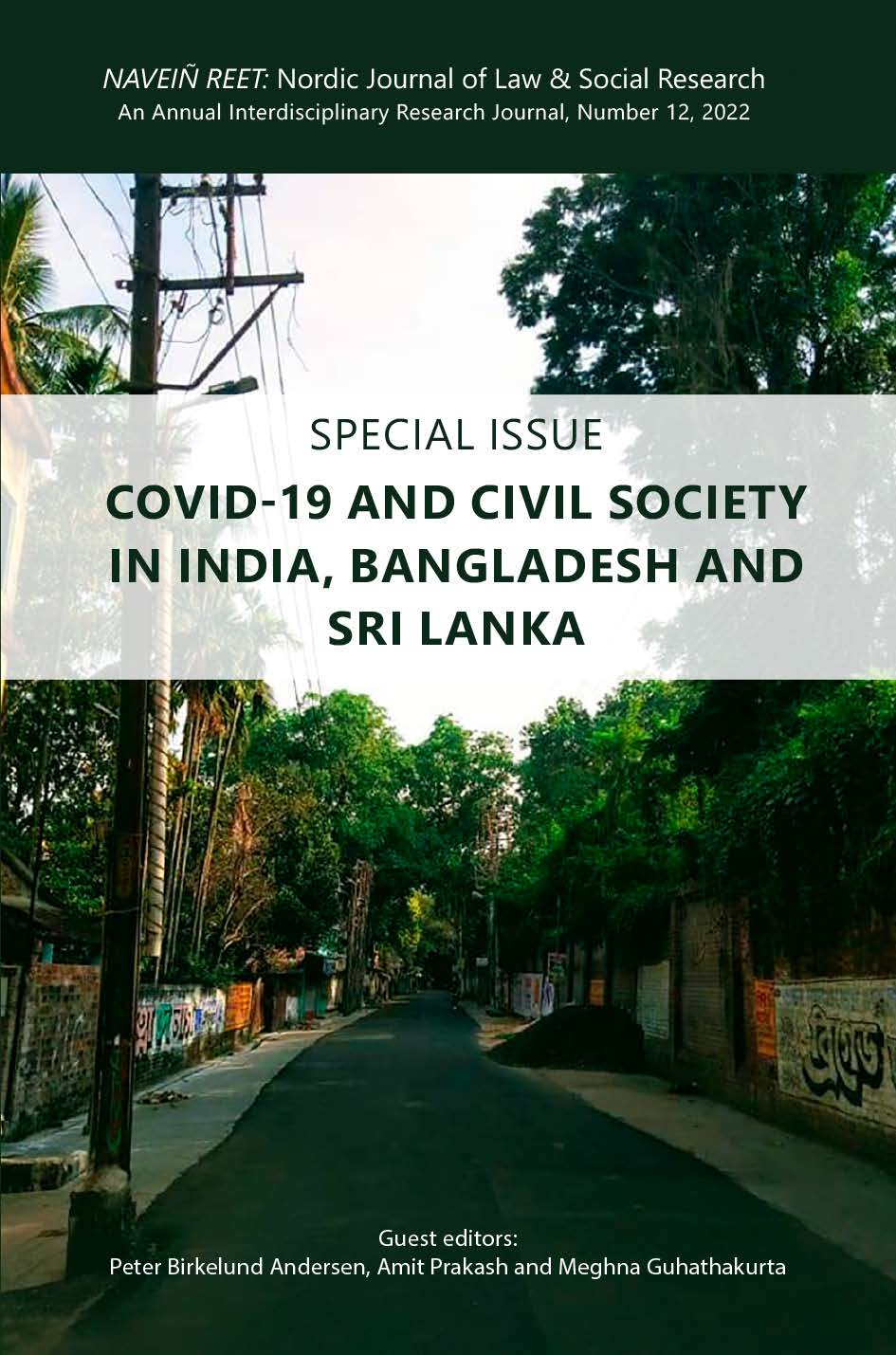Neoliberalism and the Challenges of Social Justice
Covid 19 and Migrant Labour Crisis in India
Keywords:
Neoliberalism, Migrant Labour, informal workers, Post liberalisationAbstract
Neoliberalism, governed by the organising principle of the market and its role in influencing society’s socio-economic and political spheres, has raised contradictions in the state’s capacity to ensure social justice for the vulnerable sections of the political society. This article seeks to analyse the role of the state, as envisaged in the neoliberal framework, in delivering on promises of welfare and social security for marginalised people and, specifically, for informal migrant labourers in India. It documents a strong nexus of neoliberalism and state institutions that undermines the state’s willingness to take the kinds of policy interventions that could mitigate many socio-economic elements of the informal labour market as manifested in the informalisation of labour, privatisation, precarious work conditions, and inadequate social security. The Covid–19 crisis in India exposed the sharp inequalities in India’s democracy. The article assesses the Indian state’s attempts to address the socio-economic reality of migrant labourers. Through this theoretical and empirical exploration, the article delves into questions of how the idea of ‘social justice’ and the role of the state have been reconceptualised and reframed in the neoliberal world order. Finally, the article argues that it might be impossible to reclaim social justice for the vulnerable within a neoliberal framework: we might require a paradigm shift in terms of constituting and re-imagining new political rationalities, embodied in a political discourse of rights and dignity of labour, as a prelude to redefining the principles of social justice from the vantage point of the vulnerable groups.
Downloads
Published
How to Cite
Issue
Section
License
Counting from number 12 (2022), articles published in NNJLSR are licensed under Attribution 4.0 International (CC BY 4.0). Readers are allowed to copy and redistribute the articles in any medium or format, to adapt and revise the articles, and use the articles for commercial purposes, provided that the readers give appropriate credits.
No Creative Commons licenses are applied on articles in number 1 (2009)-11 (2021). All rights reserved by the authors. Readers are allowed to download, read, and link to the articles published in volume 1 (2009)-11 (2021), but they may not republish or redistribute these articles without permission of the authors.

